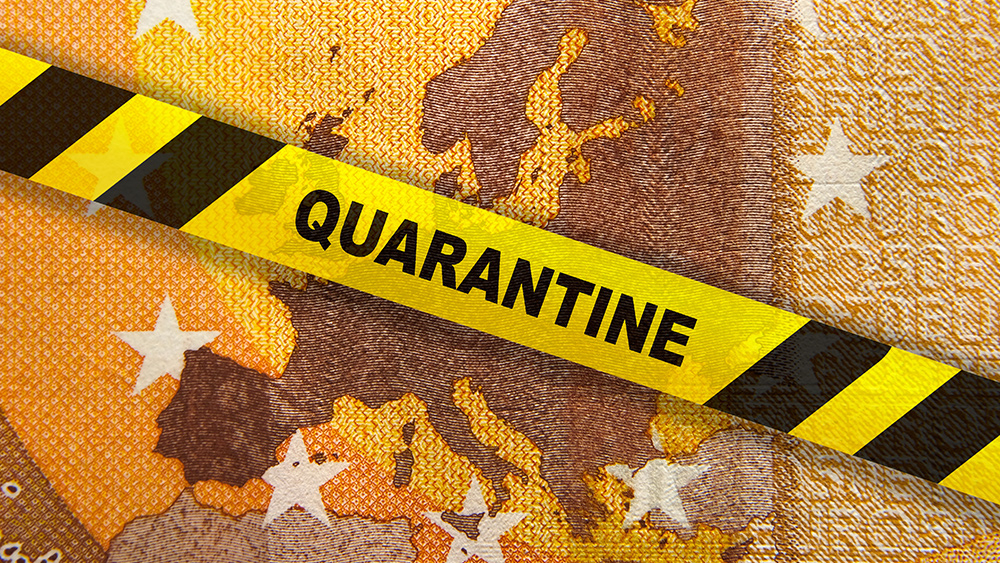German court rules strict COVID curfews in 2020 were illegal
10/08/2021 / By Mary Villareal

A German court has ruled that the restrictions imposed in Bavaria that forbade citizens to leave their homes between April 1 and 19, 2020, were ineffective and unnecessary. It also violated the prohibition of excess from higher-ranking laws.
Bavaria’s Prime Minister Markus Soder announced strict orders last year that Bavarians were required to stay at home and could only leave in “exceptional cases.” This roughly translated to citizens being able to leave their homes only for essential reasons such as work and sustenance needs.
The Bavarian Ordinance on Protective Measures Against Infectious Diseases in Response to the Corona Pandemic required the police to check compliance with the stay-at-home restrictions, in which citizens were forced to provide “credible reasons” for being outside.
The order demanded that every individual reduce all physical and social contact with other persons, except family members living in the same household, to the absolute minimum extent possible. It also introduced a mandatory five-feet physical distancing rule.
The ruling from an Administrative Court in Ansbach has declared the restrictions to be ineffective. In essence, the restrictions constituted a violation of principles in German law, which forbade the introduction of any law that disproportionately disadvantaged those who are affected, no matter the intentions.
It was determined that the government defined the valid reasons for leaving home “so narrowly” that the principle of the law had been violated. (Related: Helge Braun: Vaccinated people will definitely have more freedom than unvaccinated people.)
The court has declared that Soder’s restrictions, imposed as a strategy to mitigate the spread of COVID-19, were not necessary. The judges say that the government was careless to “choose the less burdensome of the basic rights when selecting measures from several equally suitable means.”
In the 31-page ruling, the judges also criticize the government’s appreciation of human nature, given that the state proposed staying in public to be a danger.
The judges conclude that an appeal to the Federal Administrative Court would be permissible as the legal matter is of fundamental importance. The possibility of a final decision on the matter can still be made by the highest court in Germany.
New rules for the unvaccinated in Germany
German health authorities have decided that beginning Nov. 1, the unvaccinated will no longer receive compensation for lost pay if the coronavirus measures forced them to remain in quarantine.
The mandate will affect people who tested positive for the virus as well as those returning from trips to countries that are designated to be “high risk” for COVID-19, including the U.K., Turkey and parts of France.
Critics have decried the move as equivalent to making COVID-19 vaccinations mandatory, saying that workers could not afford to stay home without pay.
Health Minister Jens Spahn defends the move, saying that others should not pay for the fact that someone decided not to be vaccinated. While it is the right of every citizen to choose not to, he insists that it was about fairness, not pressure.
Those who can’t be vaccinated for medical reasons will be allowed to show a medical certificate to prove this. “In addition, compensation will be available for citizens for whom no public vaccination recommendation has yet been given,” Bavarian Health Minister Klaus Holetschek says.
Find more news and updates about the COVID-19 situation at Pandemic.news.
Sources include:
Submit a correction >>
Tagged Under:
Bavaria, big government, coronavirus, covid-19, COVID-19 vaccine, health freedom, lockdown, medical fascism, Medical Tyranny, obey, pandemic, unvaccinated people, vaccinated people, vaccine wars
This article may contain statements that reflect the opinion of the author
RECENT NEWS & ARTICLES
Infections.News is a fact-based public education website published by Infections News Features, LLC.
All content copyright © 2018 by Infections News Features, LLC.
Contact Us with Tips or Corrections
All trademarks, registered trademarks and servicemarks mentioned on this site are the property of their respective owners.





















